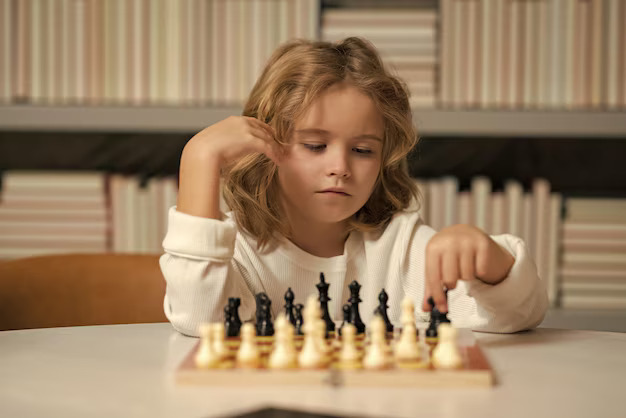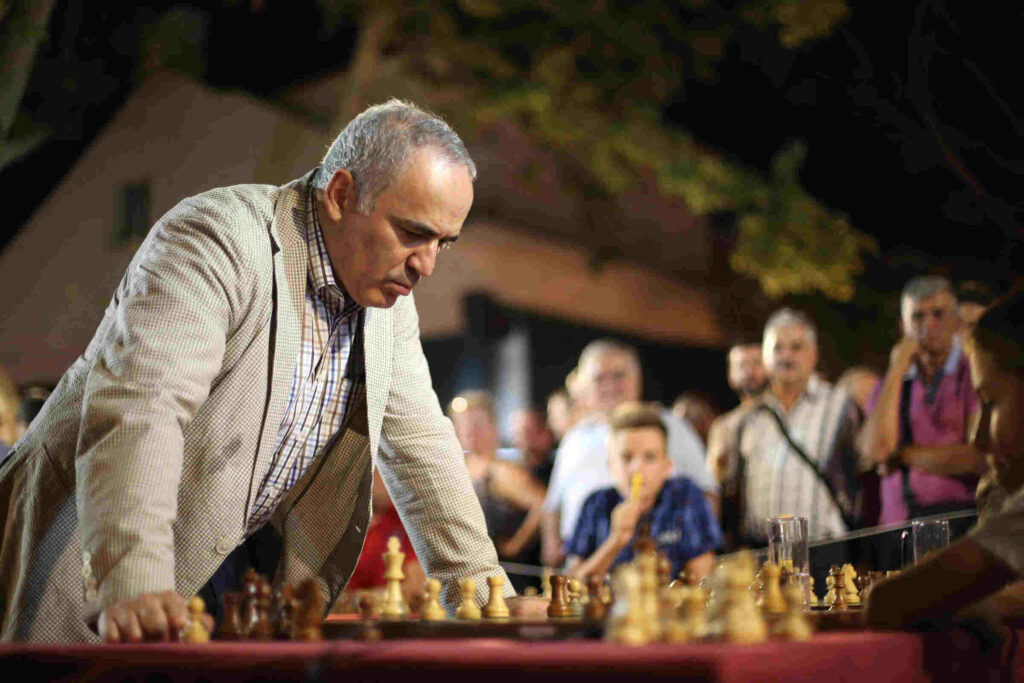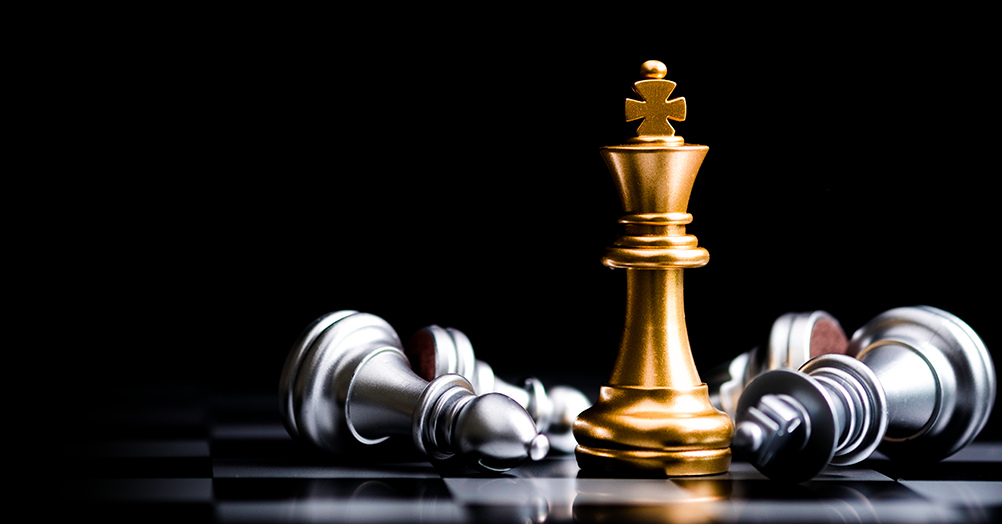Chess is often described as a mental battlefield. The intense focus, deep strategy, and complex decision-making make it one of the most intellectually demanding games in the world. But beyond the moves on the board, chess also triggers a range of psychological responses, especially when it comes to winning and losing.
How you handle victory or defeat in chess can reveal a lot about your mindset, emotional resilience, and personal growth. Winning can boost confidence, but it can also inflate egos if not managed well. Losing, on the other hand, can be discouraging, but it’s also one of the best opportunities to learn and improve. Both winning and losing carry psychological weight, and understanding how they impact your mind is essential for becoming a better chess player—and a better version of yourself.
The Emotional Roller Coaster of Winning in Chess
Winning a chess game can feel like a great accomplishment, especially when you’ve worked hard to develop your skills.
It gives you a sense of pride and validation that all your practice is paying off. But while victory is sweet, it can also come with its own set of psychological challenges that aren’t immediately obvious.
Confidence Boost: The Positive Side of Winning
Winning can be a huge confidence booster. After a victory, you feel validated in your abilities—your strategy worked, your calculations were accurate, and you made better decisions than your opponent.
This boost in confidence can encourage you to take on more difficult opponents, try new strategies, or push your limits further.
In fact, every win can serve as a reminder that you’re improving, which is incredibly motivating. The mental satisfaction of a win reinforces the idea that chess is a journey where hard work brings progress.
When handled well, winning can encourage healthy growth, self-reflection, and continued learning.
The Danger of Overconfidence
However, the feeling of victory can sometimes be misleading. A big challenge that comes with winning is the risk of overconfidence.
It’s easy to get carried away by a win, especially if it was against a strong opponent. Overconfidence can cause you to underestimate future opponents, neglect your regular study or practice, or rush through games thinking you’ve mastered everything.
Many players make the mistake of relaxing too much after a string of wins, assuming they’ve “figured it all out.” But chess is a game where overconfidence is often punished.
Winning a few games doesn’t mean you’ve reached the top, and there’s always more to learn. To avoid falling into this trap, it’s important to stay humble and keep your focus on learning, even when you’re winning.
Pressure to Keep Winning
Another hidden psychological impact of winning is the pressure it can create. Once you start winning regularly, you might feel the need to maintain that winning streak.
The fear of losing after a series of victories can create anxiety and make you approach future games with extra caution or tension.
This pressure to keep winning can sometimes make you overly cautious, preventing you from taking the risks necessary to improve.
It’s important to remember that even the best players lose sometimes, and a loss doesn’t erase your past wins or progress. The key is to stay balanced—celebrate your wins, but don’t let them become the only measure of your success.
The Psychological Impact of Losing in Chess
Losing is an inevitable part of chess, and while it can be discouraging, it is also where the most growth happens. Unlike winning, which can sometimes lead to complacency, losing forces you to reflect, learn, and adapt.
However, the psychological effects of losing can vary significantly depending on how you handle it.
The Emotional Toll of Losing
Losing a chess game, especially one you’ve invested a lot of effort in, can feel frustrating.
You might feel like all your hard work didn’t pay off, or you may be disappointed in yourself for making mistakes. It’s easy to dwell on a loss, replaying your missteps over and over in your mind.
This emotional reaction to losing is normal, and almost every chess player experiences it at some point. The key is to not let those negative emotions take over. When handled poorly, losing can lead to self-doubt, reduced confidence, or even a fear of playing again.
Many players feel a pressure to perform perfectly, and when they don’t, the sting of defeat can feel personal. But learning to separate your self-worth from the outcome of a single game is an important step in building resilience.
Shifting Perspective: Losing as a Learning Opportunity
While losing can feel difficult in the moment, it’s important to reframe how you view a loss. Instead of seeing it as a failure, try to view it as valuable feedback.
Chess is a game where every loss teaches you something about your playstyle, your strengths, and your weaknesses. It’s often said that “you learn more from your losses than your wins,” and this couldn’t be more true in chess.
After losing a game, you have the chance to review the moves that led to your defeat.
Was there a missed opportunity? Did you miscalculate a critical position? By analyzing your losses, you’re able to pinpoint areas for improvement and avoid making the same mistakes in future games. The players who improve the most are those who embrace losing as part of the learning process.
The mindset you adopt after a loss is crucial. Players who approach losses with a growth mindset—seeing every setback as an opportunity to learn—are much more likely to improve than those who dwell on defeat. In this way, losing becomes an essential part of progress.
Handling the Fear of Losing
For many players, the fear of losing can be just as harmful as the loss itself. Fear of failure can cause players to avoid risk, play too cautiously, or even stop playing altogether.
This fear can be paralyzing, preventing you from trying new strategies or playing against stronger opponents.
To overcome the fear of losing, it’s important to remember that losses don’t define you as a player. Every great chess player has lost countless games. Even world champions have faced crushing defeats.
The fear of losing starts to fade when you stop seeing it as something to avoid and start viewing it as a necessary part of improvement.
When you embrace losing as a learning experience, the fear becomes less intimidating. You start to play with more freedom, willing to take risks and experiment with new ideas.
Over time, this approach not only improves your game but also builds resilience and mental toughness.
How Losing Builds Resilience and Mental Strength

While losing in chess can be emotionally difficult, it also offers one of the best opportunities to build resilience. Resilience, or the ability to recover from setbacks and keep moving forward, is a crucial mental skill both in chess and in life.
Losing teaches you how to cope with disappointment and frustration, while also encouraging persistence and adaptability.
Bouncing Back from Defeat
In chess, no matter how skilled you become, losses are inevitable. What separates strong players from weaker ones is their ability to bounce back after a defeat.
Instead of letting a loss crush their confidence, resilient players use the experience to fuel their motivation to improve.
When you lose, it’s easy to feel discouraged, especially if the loss comes after a long series of hard-fought games. However, resilience is built by continuing to play and learn despite those losses.
It’s about being willing to come back to the board, review your mistakes, and challenge yourself again. Over time, this process of bouncing back from defeat builds mental strength and emotional endurance.
The same principle applies in life. Whether you’re dealing with challenges at work, school, or personal relationships, learning how to recover from setbacks is key to long-term success.
Chess teaches you to keep moving forward, even when the path isn’t smooth, and to see each defeat as part of the journey rather than the end of the road.
Embracing Setbacks as Part of the Journey
One of the greatest lessons chess can teach is that improvement is not linear. Progress in chess comes with ups and downs.
Some days, everything clicks and you feel on top of your game, while other days nothing seems to go right. This variability is normal, but it can be hard to accept when you’re focused on immediate results.
In chess, setbacks often mean you’re challenging yourself—playing against stronger opponents or experimenting with new strategies. These losses are a sign that you’re pushing your limits, and that’s a good thing. If you never lose, it likely means you’re not playing at a high enough level to really improve.
Learning to accept setbacks as part of the chess journey is essential for maintaining perspective and staying motivated. The game teaches you that growth doesn’t happen in a straight line.
Instead, it comes from working through the tough moments and learning from each challenge.
As you grow more comfortable with setbacks, you’ll find that losing doesn’t carry the same emotional weight as before. You’ll start to see it as an opportunity to test yourself and discover new ways to improve.
Developing Mental Toughness
Mental toughness is the ability to stay focused and composed, no matter what happens. In chess, this toughness is tested every time you sit down to play.
Losing a critical piece, missing a key move, or finding yourself in a difficult position can shake your confidence. But part of becoming a strong player is learning how to remain mentally tough in these moments, and not let setbacks spiral into defeat.
Mental toughness is what allows you to stay in the game, even when it feels like the odds are against you. It helps you push through when you’re behind, focus on the next move, and look for ways to turn the situation around.
Chess teaches you to never give up, because even in the toughest positions, there’s often a way to fight back.
Building mental toughness through chess can also help you handle real-life challenges.
Whether you’re dealing with pressure at work, personal stress, or other life difficulties, the ability to stay focused, composed, and persistent in the face of obstacles is invaluable.
The Psychological Impact of Winning: Growth or Ego?
While losing in chess can often teach humility and resilience, winning comes with its own set of psychological challenges and opportunities. How you handle victory is just as important as how you handle defeat.
While winning can be a sign of growth, it can also inflate your ego and lead to complacency if you’re not careful.
The Fine Line Between Confidence and Complacency
Winning, especially after a challenging game, feels rewarding. It’s a validation of your hard work and can boost your confidence, which is necessary for any chess player to continue improving.
Confidence helps you trust your own judgment, take calculated risks, and approach future games with a positive mindset.
However, the danger lies in letting this confidence turn into complacency. When you win too often or too easily, you might start to assume that you’ve mastered the game or that you’re better than your opponent in every situation.
This can lead to underestimating opponents, rushing through moves, or neglecting further study. Chess is a game where overconfidence is quickly punished—often in your very next game.

To avoid falling into complacency after a win, it’s important to stay grounded and humble. Always remind yourself that there is more to learn.
Even the best players in the world continue to refine their skills.
Each win should be viewed not as the end of the journey but as a checkpoint along the way. Chess is an endless process of learning and growth, and maintaining this perspective keeps you focused and motivated.
Using Wins as a Motivation to Learn More
While losing is often framed as the best learning tool, winning can also be a powerful motivator for growth—if handled correctly. When you win a game, it’s easy to focus on what you did right.
But you should also analyze the game critically to see if there were moments where you could have played better. Even in victory, there are always small mistakes, missed opportunities, or suboptimal moves that can be improved.
By reviewing your wins with the same critical eye as your losses, you develop a more well-rounded approach to learning. You’re not just content with winning; you want to understand the “how” and “why” behind your success.
Did you win because of solid tactics?
Or was your opponent playing poorly? Was there a moment where you could have achieved a stronger position? By asking these questions, you stay focused on continuous improvement rather than just celebrating the result.
This mindset of curiosity—always seeking to learn more, even in victory—helps you avoid the trap of stagnation. The more you focus on the process of improvement rather than just the outcome, the more progress you’ll make in the long run.
Managing the Pressure of Repeated Success
With success comes the pressure to maintain it. When you start winning regularly, you may feel an increased sense of expectation—from yourself, your peers, or even from spectators if you’re playing in a competitive environment.
This pressure can be both motivating and paralyzing, depending on how you handle it.
Some players thrive under this pressure, using it to fuel their focus and determination. However, others might start playing too cautiously, fearing that one loss will tarnish their winning streak.
This fear of losing after a series of victories can create unnecessary tension, making it harder to enjoy the game or play with the same level of freedom.
To manage this pressure, it’s important to keep perspective. A loss doesn’t erase your past successes, and even the greatest champions lose from time to time.
The key is to remember that chess, like life, is about constant learning. Instead of focusing on maintaining a perfect record, focus on playing each game with clarity, purpose, and joy.
Success is a byproduct of this approach, but it shouldn’t be the sole focus.
Chess and the Development of Emotional Intelligence

Chess is not just a battle of wits—it’s also a game that tests and develops emotional intelligence. Emotional intelligence is the ability to understand and manage your emotions and the emotions of others.
In chess, whether you’re dealing with the thrill of victory or the frustration of defeat, you’re constantly managing your emotional reactions, both internally and in your interactions with opponents.
Staying Emotionally Balanced During the Game
During a chess game, emotions can swing dramatically depending on the position on the board. A single move can change the momentum of the game, leading to excitement, anxiety, or even panic.
One of the most important psychological skills chess teaches is the ability to stay emotionally balanced, no matter what’s happening in the game.
When you’re winning, it’s easy to feel overconfident, which can lead to careless mistakes. On the other hand, when you’re losing, frustration or hopelessness can creep in, causing you to give up mentally before the game is over.
Chess players learn that, regardless of the position on the board, staying calm and composed is essential for clear thinking. Emotional stability helps you avoid rash decisions, giving you a better chance to maintain control over the game.
This emotional discipline is directly transferrable to life outside of chess. In stressful situations at work, home, or in personal relationships, the ability to stay calm under pressure and manage your emotional reactions helps you make better decisions.
Chess teaches you that emotions, while natural, should not dictate your actions. Instead, they should be acknowledged, understood, and managed thoughtfully.
Reading Your Opponent’s Emotions
Chess isn’t just about your own emotional state—it’s also about understanding your opponent’s. Chess players often develop a keen sense of emotional awareness, learning to read body language, facial expressions, and behavior patterns to gauge how their opponent is feeling.
Is your opponent feeling frustrated? Are they nervous after a bad move? Understanding these subtle emotional cues can give you a psychological edge during the game.
By observing your opponent’s emotional state, you can adapt your strategy. If they’re flustered, you might apply more pressure with aggressive tactics. If they seem overly confident, you might play more cautiously, waiting for them to make a careless mistake.
This skill of reading and reacting to others’ emotions builds emotional intelligence, a valuable skill both on the chessboard and in everyday life.
In personal and professional interactions, being able to sense the emotions of others helps you navigate social situations more effectively.
You become better at understanding what others are feeling and can respond with empathy, tact, or assertiveness, depending on what the situation calls for. Emotional intelligence is one of the most important traits for building strong relationships and resolving conflicts, and chess can help you hone this skill.
Long-Term Psychological Growth Through Chess

Whether you’re winning or losing, the long-term psychological benefits of chess extend far beyond the immediate results of a single game. Chess is a game of endless growth.
Each experience—whether it’s the thrill of a victory or the lessons learned from a loss—contributes to your overall development as a person. Over time, chess helps shape how you think, how you handle challenges, and how you approach life.
Building Grit and Persistence
Chess teaches players to develop grit, the quality of being able to persist through difficulties and setbacks.
Grit is often the difference between those who continue improving and those who give up when things get tough. In chess, you are constantly faced with difficult positions and tough opponents, and the only way to get better is by pushing through these challenges.
As you develop grit in chess, you’ll find that it becomes easier to stay committed to long-term goals, both in the game and in life.
Whether it’s learning a new skill, advancing in your career, or navigating personal relationships, the persistence you develop through chess helps you remain focused and motivated, even when progress feels slow.
Developing a Growth Mindset
One of the most significant psychological shifts chess promotes is the development of a growth mindset. A growth mindset is the belief that your abilities and intelligence can be developed through hard work, practice, and learning from mistakes.
In chess, every game—win or lose—is an opportunity to learn and grow.
When you adopt a growth mindset, losing doesn’t feel like failure—it feels like progress. You start to see every mistake as a stepping stone toward improvement.
Similarly, winning doesn’t make you feel like you’ve “arrived” or mastered the game. Instead, it reinforces your understanding that improvement is ongoing, and there is always room to grow.
This mindset is incredibly valuable in life. Whether you’re pursuing personal goals or facing challenges, a growth mindset helps you stay resilient and focused on the bigger picture.
Chess teaches you to embrace the process of learning, and that mindset leads to continuous improvement both in and outside the game.

Finding Balance Between Winning and Losing
In the end, both winning and losing in chess provide valuable lessons, and finding a healthy balance between the two is key to your growth as a player—and as a person.
Winning teaches you about confidence, but it also comes with the responsibility of staying humble and continuing to learn. Losing teaches resilience and self-awareness, but only if you approach it with the right mindset.
Both experiences are necessary, and chess teaches you to embrace them equally as part of your development.
The Importance of Reflection
No matter the outcome of a game, the process of reflection is vital. After every match, take time to review the game. What did you do well? Where could you have made better decisions?
What emotions did you experience, and how did they affect your gameplay? By reflecting on your wins and losses, you deepen your understanding of the game and yourself.
This habit of reflection is valuable in life as well. Whether you’re evaluating a work project, a personal decision, or a conversation with a friend, taking the time to reflect allows you to learn and improve.
Chess fosters this habit, helping you become more thoughtful and intentional in everything you do.
Chess as a Lifelong Teacher
Chess is not a game you ever fully master. There’s always something new to learn, new challenges to face, and new strategies to explore.
The psychological growth you experience through chess doesn’t stop after a few games—it continues for as long as you play. Each win teaches you how to manage success gracefully, and each loss reminds you of the importance of persistence and learning.
The balance between winning and losing, growth and setbacks, is what makes chess such a powerful tool for mental development. It pushes you to stay focused, emotionally aware, and committed to improving—not just as a player, but as a person.
Wrapping it up
Chess is more than just a game of strategy—it’s a powerful tool for personal growth. Both winning and losing offer valuable lessons that shape your emotional intelligence, resilience, and mindset.
While winning boosts confidence, losing teaches perseverance and the importance of continuous learning. The key is finding balance and embracing both outcomes as opportunities for growth.
At Global School of Chess, we believe chess is a lifelong journey of mental and emotional development. Each game, whether won or lost, helps you become not only a better player but a more mindful, resilient person. Ready to grow through chess? Let us guide you on this transformative journey!
READ NEXT:

